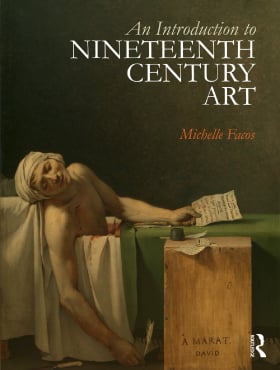Myrone, Martin. Gothic Nightmares: Fuseli, Blake and the Romantic Imagination. Exhibition catalogue. London: Tate, 2006
Heinrich Fuseli
Died: Putney Hill (near London), 16 April 1825
Nationality: Swiss
son of painter Johann Caspar Füssli
largely self-taught; art historical training from his father
1761 – ordained as Zwinglian minister
1762 – exiled from Zurich due to publication of critical tract against Zurich magistrate, co-written by Johann Kaspar Lavater and Felix Hess
1767-8 – moves to London; meets Joshua Reynolds, becomes artist
1781 – exhibitsThe Nightmare at Royal Academy
1788 – elected Associate of RA
1789 – first exhibition at John Boydell’s Shakespeare Gallery
1790 – becomes full member of RA; opens Milton Gallery
1799-1805 – professor of painting at RA
1804 – appointed curator at RA
1810 – re-elected professor of painting at RA
Fuseli was a prolific writer. His production includes translations, poetry, journalism, history, theory, and art and literary reviews
Students
John Constable, Benjamin Robert Haydon, Edwin Landseer, and William Mulready
Travels
Germany (1763); London (1764-70, 1779-1825); Rome (1770-78); Zurich (1778); Paris (1802)
John Boydell, Thomas Coutts, William Roscoe, and William Lock
Thor Battling the Midgard Serpent, 1788 (Royal Academy, London)
Titania and Bottom, 1790 (Tate, London)
The Serpant Tempting Eve, 1802 (Auckland Art Museum)
Documentation:
Martin Myrone comments on Fuseli’s contemporary reputation:
“Fuseli’s public exhibits were accompanied by an unusually high level of press interest. In the intensively competitive art scene taking shape at that moment, he was singled out as the leading painter of sublime and supernatural themes, whose work had both sensational immediacy and rare physical grandeur. Through direct reproductions, pastiches, and caricatures, many of his images – The Nightmare (first exhibited 1782; Detroit Institute of Arts) pre-eminently – gained an unusually wide currency in the visual culture of Britain, Europe, and even North America, and provided a key point of reference in contemporary discussions of taste and the imagination.” 289-90
Martin Myrone, “Henry Fuseli and Gothic Spectacle,” The Huntington Library Quarterly, vol. 70, no. 2 (2007): 289-90.

 Buy the Book
Buy the Book